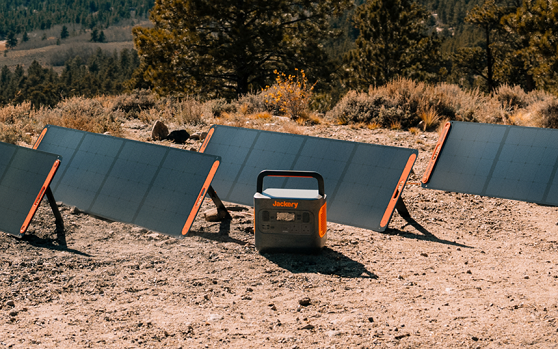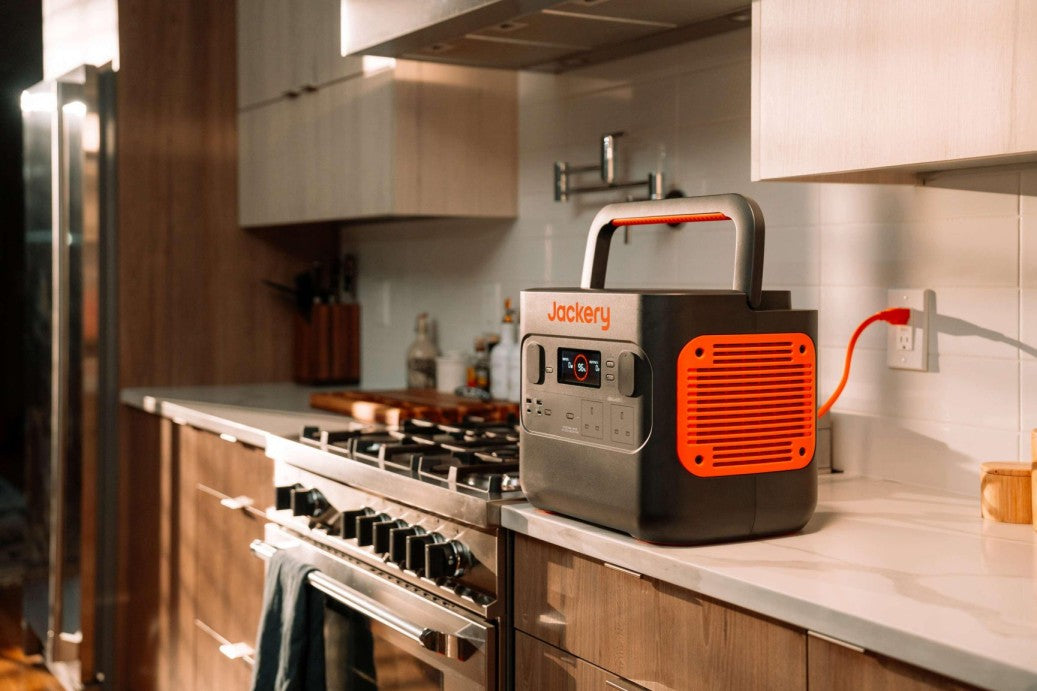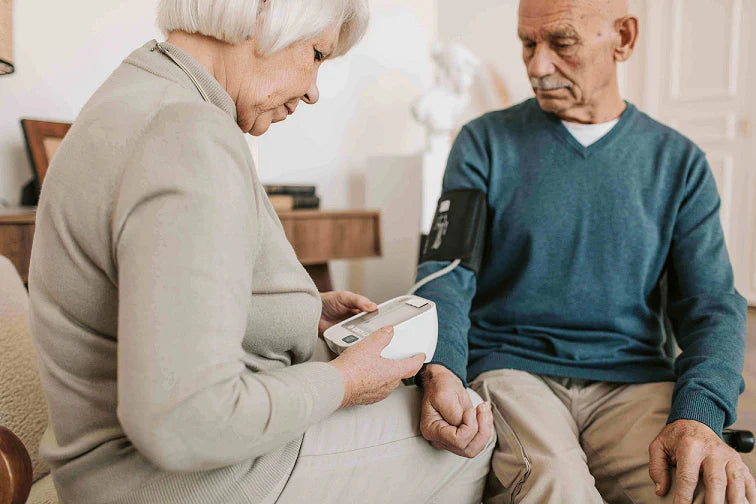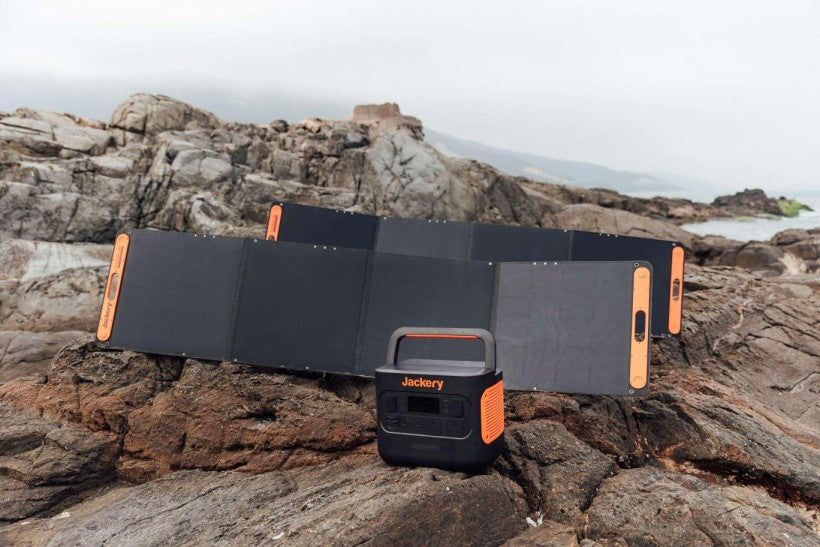Understanding the Risks of Insufficient Power Preparedness in Winter
Let's discuss the cold weather challenges during power outages and the forfeits for unpreparedness.
- Freezing Temperatures
When temperatures tumble below freezing during power outages in the UK, the physical properties of materials in homes and infrastructure are altered. For instance, water pipes can freeze and burst as water expands upon freezing for property damage. Further, the effectiveness of thermal insulation in homes diminishes during lengthy power outages. Most insulation materials rely on trapped air, which loses heat without a heat source. Hence, the indoor temperature can approach the outdoor temperature within hours, depending on the building's construction and insulation.
The cold also affects electronic devices and batteries. Conventional lithium-ion batteries in mobile devices and backup batteries experience abridged electrochemical performance at low temperatures. It hinders their ability to hold a charge for limited communication and access to information during outages. Similarly, the viscosity of lubricants in generators and mechanical systems increases in cold weather. It demands more energy for operation and increases mechanical failure.
- Limited Access to Heating
Limited access to heating sources is a concern during cold-weather power cuts. Traditional heating systems, including furnaces and boilers, that are operated on electric components become useless during outages. While a temporary solution, portable heaters pose jeopardies such as carbon monoxide poisoning if misused or without adequate ventilation.
Likewise, the challenge of distributing and utilising alternative heat sources like wood or kerosene becomes noticeable. This is true in urban areas of the UK where such resources are unavailable or in homes which don't have such compatible appliances. Understanding the thermal dynamics of living spaces is crucial, particularly when faced with limited access to heating during a power outage. As hot air naturally ascends and accumulates with insulation, choosing to stay on the upper floor or in well-insulated rooms serves as a strategy to mitigate the heating challenges posed by a power outage. However, it's essential to acknowledge that this approach can offer only a modest level of support.
- Increased Risk of Hypothermia
Hypothermia is also a peril during protracted power cuts in cold weather. It is mainly for vulnerable populations in the UK, including the elderly, infants, and those with certain medical conditions. The human body maintains a core temperature of about 37°C or 98.6°F. A drop in core temperature due to external cold can prompt hypothermia.
The risk is highlighted in power cuts because active heating systems fail, and passive heating becomes less effective over time. Knowing the body's thermoregulation mechanism is essential. The hypothalamus regulates body temperature with balanced heat production and heat loss. Yet, the balance can be disrupted in extended cold settings without adequate heating. It calls for insulative clothing and materials with layers to trap body heat.

- Potential Consequences of Unpreparedness
Unpreparedness for cold-weather power cuts in the UK can have physical and socio-economic impacts. Initially, individuals face immediate physical health risks like hypothermia and frostbite in extremities. The body works to uphold core temperature, which can cause permanent tissue damage. The lack of power also affects medical devices. It endangers those contingent upon electrically powered equipment, including oxygen concentrators, home dialysis machines, and medication refrigeration. So, insufficient power preparedness can result in poor health complications or even fatalities.
Economically, these outages impose costs on individuals through pipe repair and healthcare expenses. They also disrupt local economies, interrupt business operations, and cause income losses. Moreover, community services and infrastructure suffer, including compromised water treatment facilities and overwhelmed emergency services. This state of affairs emphasises emergency preparedness plans at individual and community levels to back essential services and defenceless populations during drawn-out power outages in the UK.
Winter Power Outage Preparedness Checklist
In this part, we should discuss how to prep for a power outage in winter. Let's do it.
- Creating a Home Emergency Kit
As we all know, the UK weather can be quite erratic; therefore, households may be better prepared with a home emergency kit. Common items to be included are a torch for lights, a radio for information, and medications for any medical emergencies. What's most important is having an adequate food and water reserve to last for at least three days.
Additionally, consider including a portable power bank. Ideally, it should have solar charging capabilities to keep mobile devices purposeful. An electronic thermometer and a supply of formula or baby food are vital for families with infants. Remember, this kit should be accessible and checked frequently so all items are in working order and have not expired.
- Winterising Your Plumbing
In colder UK regions, averting pipes from freezing is fundamental. Use lagging, a type of foam tubing, to segregate exposed pipes while focusing on areas like attics and basements. It's a simple yet operational method to moderate the possibility of pipes bursting due to freezing.
Consider installing a smart thermostat with pipe monitoring capabilities for a more high-tech approach. They can alert you to temperature drops so you can take preventative action. Some models can even distantly activate heating to preclude freezing when you are away from home.
- Backup Heating Solutions
In a power outage, having an alternative heating source is necessary. Portable gas heaters are prevalent in the UK. Still, they must be used with caution to circumvent carbon monoxide poisoning. Confirm that your space is well-ventilated and the heater is certified for indoor use.
In comparison, a wood-burning stove can be more accessible thanks to its independence from fuel supply. You can use it for space heat or food preparation. While wood is an economical and accessible solution, a backup generator for the home is better if you are thinking about a more convenient and versatile solution as it can sustain all the essential appliances for peace of mind during outages.
- Communication and Information
For staying informed during winter storms, a battery-operated or hand-crank radio helps receive weather updates and news. In the UK, BBC Radio provides wide-ranging coverage. In the digital age, keeping your devices charged is key for communication. Invest in a high-capacity power bank to charge your devices for timely communication and information acquisition. Apps like UK Power Networks give real-time updates on power outages in your area and restoration efforts.
Home Battery Storage and Alternative Energy Sources
Home battery storage systems help augment the efficiency of residential renewable energy setups. Commonly, these systems utilise lithium-ion due to their energy density and durability. The battery management system regulates charge cycles and guarantees battery permanency. Progressive systems may integrate smart home technology for predictive analytics based on usage patterns and weather forecasting. So, read further as we explore the specific benefits of their applications in power outages and some tips for optimising the usage.
- Benefits of Alternative Energy Sources during Power Outages
Home battery storage that taps into solar, wind or hydropower can help during UK power outages. For protection against grid failures, they offer amazing reliability. Therefore, these power sources come from nature and are not influenced by human incidents. For example, when there is sunshine, you can put out your solar panels to collect the energy to charge storage batteries, which can sustain multiple household appliances, including heating, cooling, and refrigeration.
- Practical Tips to Integrate Renewable Energy into Your Home
Integrating renewable energy in a home requires careful planning on the household energy demands, energy source selection, budget and application. As a starter, home energy audits will help you gain an overview of your energy efficiency and consumption.
Regarding the selection of renewable energy sources, solar energy panels and wind energy systems are common options with similar initial costs. Yet, wind turbines may require more maintenance due to their innate structure and pose higher demands on location, as buildings in the neighbourhoods may block the wind. For solar systems, it is more straightforward. To receive the best sunlight conversion, you just need to put the solar panels in an open space with a direction facing directly to the sunshine.
To further enhance the cost efficiency of household renewable energy systems, opt for energy-efficient appliances and consider a grid-tied system with net metering if that's an option in your area.
Generator Considerations
- Selecting The Right Generator for Cold Weather
When choosing a solar generator for winter conditions in the UK, consider its cold-weather performance. Opt for models with a low-temperature tolerance and confirm a high IP rating for weather resistance. Moreover, consider generators for homes with cohesive Maximum Power-Point Tracking technology. It adjusts the charge from solar panels during low light conditions in UK winters.
- Proper Installation and Maintenance
Properly installing and maintaining a solar generator in winter embroils tactical placement and checks. Install the solar panels at an angle for snow shedding and maximised sun revelation during the low-angle winter sun. For maintenance, consistently check and clean the solar panels to remove snow, ice, or debris for efficiency. Furthermore, keep the battery and generator unit in a moderately insulated environment to avoid thrilling cold exposure, which may reduce battery reliability.
- Safety Precautions When Using Generators in Winter
Safety dominates when operating solar generators during winter. Ensure adequate ventilation for the generator to thwart any buildup of condensation, which may cause electrical hazards. Use weatherproof and insulated cabling for low temperatures to evade cracking or brittleness. Besides, be mindful of the increased danger of slipping or tripping around the installation site due to ice or snow. Habitually inspect electrical connections for any moisture ingress or corrosion. Also, never operate the generator with wet hands or in damp conditions to disregard electric shock.
Jackery Solar Generators for Home Power Outage Preparation
For home power outage UK preparation during the winter, our Jackery Solar Generator 1000 v2 and Jackery Solar Generator 2000 Plus are reliable and have considerable advantages. They both come with a 5-year warranty if directly purchased from Jackery's official website, 10 years of battery life and a wide operational temperature range, capable of handling most British winter days. Let's explore their features in more detail.
- Jackery Solar Generator 1000 v2
Our Jackery Solar Generator 1000 v2 has a 1070Wh LiFePO4 battery and can power vital household devices. Its 1500W output can run a kettle for 1.4 hours, an electric pressure cooker for 1.3 hours or an induction cooker for 0.6 hours. It is key during winter outages to keep warmth and cooking facilities. Its rapid charging ability also takes full charge in as fast as 1 hour for quick readiness. The unit's portable power station weighs 23.8 lbs, making it easy to move for various uses inside the house.
- Jackery Solar Generator 2000 Plus
Our Jackery Solar Generator 2000 Plus has a 2-12 kWh of expandable capacity and a 3000W output for more demanding power needs. It can support electric heaters or air conditioners for winter comfort in the UK. For instance, it can power a portable air conditioner for around 2 hours or an electric oven for about 1 hour. Our unit has fast solar charge in 2 hours. Similarly, its dual battery protection and four temperature core detectors confirm secure operation during the cold months.
Conclusion
At Jackery, we provide cutting-edge, dependable, and environmentally friendly power solutions for circumstances like power outages. Our Lithium-ion battery technology guarantees secure and enduring power, and our products are ultimate for home backup and off-grid living. Our solar energy solutions, including compact solar generators and panels, offer sustainable power for outdoor undertakings like camping. We focus on compactness, efficiency, and ecological friendliness, making our products indispensable to your energy needs for many applications.
Reference
[1] UKpower/2023. UK Power Cut Survey Revealed. Available at https://www.ukpower.co.uk/gas_electricity_news/power-cut-survey-revealed. (Accessed on Jan. 11th, 2024)


































































































